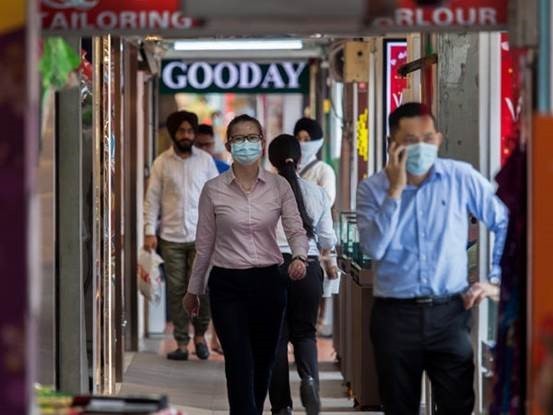
Image credit: Business Insider
Despite not being able to operate since March, the owner of a nightclub has been chalking up debts from a running lease that will expire only in March next year.
Moving to another business model such as food and beveragewould be difficult as his workers have returned to their home countries. Adding to his woes is the high cost of terminating the lease, with some nightlife businesses having early termination fees of around $250,000.
Changes to the law approved by Parliament yesterday will be a lifeline for such businesses badly hit by the pandemic.
Second Minister for Law Edwin Tong cited this example of an appeal the ministry received in making the case for small and micro businesses to be allowed to terminate certain commercial contracts without penalty under the Re-Align Framework if they are unable to renegotiate new terms.
Such businesses have limited negotiating power and are most in need of help, he added.
Mr Tong, who is also Minister for Culture, Community and Youth, was making the case for the third set of amendments to the Covid-19 (Temporary Measures) Act.
The framework covers small and micro businesses, with a prescribed annual revenue cap, that have seen a significant fall in revenue. Details will be given at a later date.
It covers contracts governed by Singapore law, entered into before March 25 and terminated from Nov 2. One of the parties must also have a place of business in Singapore.
These contracts may be leases or licences for commercial property; the sale and purchase of goods and services; and rental, hire-purchase or conditional sales agreements for commercial equipment and vehicles, among others.
Once the amended Act commences, businesses will have only six weeks to enter into renegotiations by serving notice to the other contractual party or parties.
Parties will then have a mandatory four weeks to renegotiate the terms. If they fail to agree on new terms, contracts can be terminated without penalty. Any earlier debts and liabilities from the contract will still continue to stand.
Parties who disagree on the business' eligibility to be covered under the framework or the amount owed upon termination of the contract can seek an assessor appointed by the Ministry of Law to make the final decision.
Explaining the framework, Mr Tong noted that the Covid-19 (Temporary Measures) Act was passed in April, allowing businesses and individuals to defer certain contractual obligations without penalty for a relief period of six months.
But the relief period cannot be prolonged and measures cannot be continued indefinitely.
Said Mr Tong: "We will risk sustaining businesses that are no longer viable. It would trap and lock away precious economic capacities such as workers, or property and assets, and this, in the longer term, would be damaging for our economy."
Instead, the Government is now moving towards helping businesses - particularly smaller ones - to focus on recovering.
Mr Tong shared an example of a mall tenant who has a drastic fall in earnings to around $3,000 a month, after safe management barriers were put up near his shops.
His lease, which costs $9,000 a month and was signed before the pandemic hit, would end only in October next year.
The minister shared that the tenant had approached his landlord, hoping to negotiate a temporary reduction in rent until things improve.
"However, in this case, his landlord will not entertain any discussions," said Mr Tong. "On the other hand, if he terminates the contract before his lease ends next year, he will have to pay substantial damages for early termination."
"He is therefore stuck in this position, and continues to bleed. If nothing changes, it is likely that he will breach the tenancy.
"If the arrears or compensation for termination is not paid, parties will end up in litigation and the tenant might end up insolvent."
Such situations are not in the interests of the parties, or for the greater overall good of Singapore's economy, as businesses will close down with a likely unrecoverable mountain of debt, and jobs will be lost while businesses and creditors tussle in court, he said.
In the case of the mall tenant, he had entered into the lease contract before Covid-19 amid a different business environment and operating assumptions, and is now unable to comply with obligations through no fault of his own, said Mr Tong.
The right to terminate his lease under the new framework will give the tenant some leverage to renegotiate the terms of the contract.
Exceptions will apply to certain small landlords to receive additional compensation that will be determined by an assessor, as they are likely to face hardship if tenants terminate their leases.
Hirers and renters of commercial equipment and vehicles will also be able to seek up to 18 months to repay their loans under a statutory repayment scheme, instead of terminating their contracts, with interest capped at 5 per cent per annum.
This is a necessary option for some businesses, as they need the equipment or vehicles to maintain their livelihoods, said Mr Tong.
Source: https://www.straitstimes.com/singapore/politics/early-end-to-contracts-will-help-struggling-small-firms-move-on

